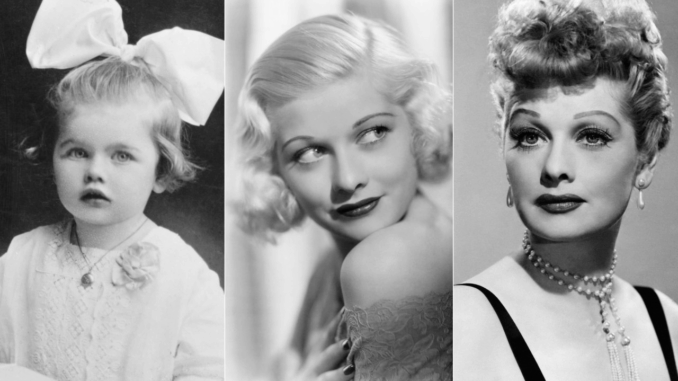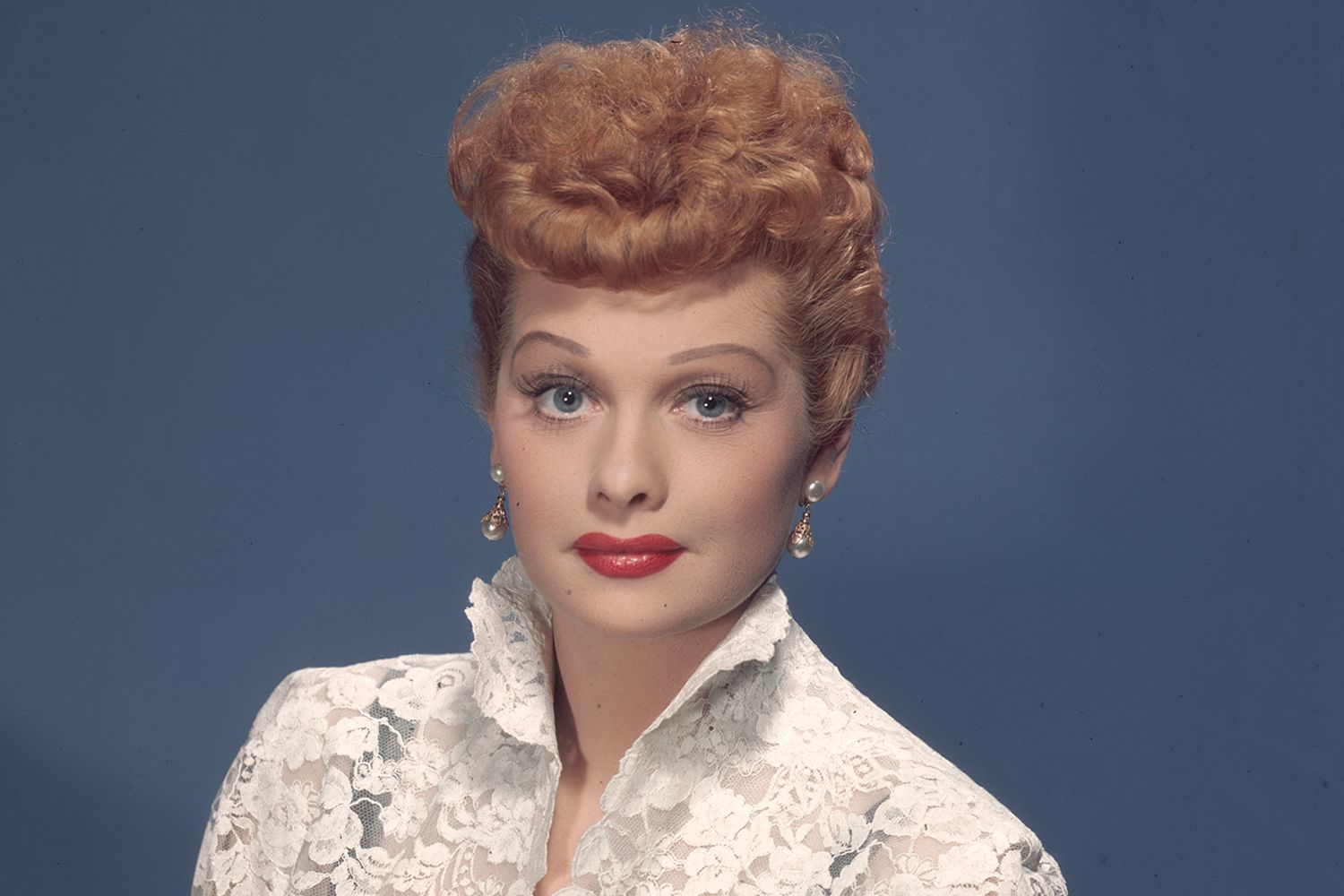
Lucille Ball, a name synonymous with groundbreaking television, didn’t fade after the curtains closed on I Love Lucy — in fact, her most empowering and revolutionary contributions to the entertainment industry came after the show ended. With her unmatched wit, bold business acumen, and fearless trailblazing in a male-dominated field, Ball built a lasting legacy that continues to inspire generations.
Contents
- From Sitcom Sensation to Industry Pioneer
- Lucille Ball on the Screen Again
- Accolades and Recognition
- A Businesswoman Who Broke Every Mold
- Lucille Ball’s Legacy in Film and Public Appearances
- Inspiring the Next Generation
- Lucille Ball in the Digital Age
- Conclusion: A Legacy Etched in Gold
- The Courage to Take Creative Risks
- A Lasting Influence on Comedy and Representation
From Sitcom Sensation to Industry Pioneer

After I Love Lucy ended in 1957, Lucille Ball’s influence didn’t stop at comedy. She co-founded Desilu Productions with then-husband Desi Arnaz, a company that would go on to shape the future of television. Though Desi left the company in 1962, Lucille became the first woman to run a major Hollywood studio, making her a true icon not just of laughter, but of leadership.
Under her guidance, Desilu Productions greenlit legendary shows like:
-
Star Trek
-
Mission: Impossible
-
The Andy Griffith Show
These programs transformed the TV landscape, showcasing Ball’s impeccable foresight and fearlessness in supporting innovative, risky projects. Without her, science fiction and espionage series might not have thrived in the way we know them today.
Lucille Ball on the Screen Again
Though Ball’s work behind the scenes was groundbreaking, her on-screen presence remained powerful. She starred in several follow-up sitcoms including:
-
The Lucy Show (1962–1968)
-
Here’s Lucy (1968–1974)
Both series were commercially successful and proved Ball’s enduring popularity. The Lucy Show kept much of the charm that made I Love Lucy iconic, while Here’s Lucy gave her a platform to work with her real-life children, Lucie Arnaz and Desi Arnaz Jr.
These series not only extended her career but also kept her relevant in an era when many actors faded away. Ball consistently evolved her comedic persona while maintaining the authenticity that fans adored.
Accolades and Recognition

Lucille Ball’s post-I Love Lucy career earned her tremendous recognition:
-
Four Emmy Awards for The Lucy Show
-
Presidential Medal of Freedom (1989, posthumously)
-
Kennedy Center Honors (1986)
Her talent was never confined to a single character or decade. She became a beacon for working women, especially those in entertainment, proving that age, gender, or the end of a beloved show didn’t dictate one’s creative expiration.
A Businesswoman Who Broke Every Mold
What truly sets Lucille Ball apart is her tenacity in business. When she took over Desilu Productions, many doubted her ability to lead a studio. Yet she not only sustained it — she transformed it.
Her decision to support genre-defining content like Star Trek wasn’t driven by trends, but by a gut instinct and a willingness to back visionary creators. She showed the world that creative leadership could be both profitable and progressive.
Lucille later sold Desilu to Paramount in 1967, which became the foundation of what is now CBS Studios. That transaction cemented her influence not just in comedy, but in the evolution of American television production.
Lucille Ball’s Legacy in Film and Public Appearances
Although Ball is most known for her television work, she also ventured back into film and public roles in her later years. She appeared in:
-
Mame (1974), a musical comedy that displayed her versatility
-
Guest appearances on talk shows, awards ceremonies, and documentaries
Her charisma and wisdom made her a frequent guest on programs that honored television history. She was often called upon as an expert on the comedy industry, and her words carried weight — not just because of nostalgia, but because she was living proof of how to lead with laughter and resilience.
Inspiring the Next Generation

Lucille Ball has become a symbol for generations of entertainers — particularly women — looking to break barriers. Her life after I Love Lucy is a blueprint for success that transcends celebrity.
She demonstrated that:
-
Reinvention is possible at any stage of life.
-
Laughter can be a tool of empowerment.
-
Female leadership in media isn’t just necessary — it’s powerful.
Her influence echoes in the careers of comedic icons like Tina Fey, Amy Poehler, and Melissa McCarthy, who have all cited Ball as a major inspiration.
Lucille Ball in the Digital Age
In recent years, streaming platforms have introduced I Love Lucy and her later shows to younger audiences, sparking renewed admiration. Documentaries and biopics, like Being the Ricardos (2021), further immortalize her story, portraying both her brilliance and her complex humanity.
Through social media tributes, fan-created content, and the enduring syndication of her shows, Lucille Ball continues to be relevant — a rare feat for stars of her era.
Conclusion: A Legacy Etched in Gold
Lucille Ball’s career after I Love Lucy is not just a continuation — it’s an evolution. She went from beloved sitcom star to visionary studio executive, cultural icon, and eternal inspiration. Her resilience, creativity, and boldness reshaped the television industry and opened doors for countless talents.
Even decades after her passing, Ball’s laughter still echoes in living rooms around the world. More importantly, her courage to lead, create, and innovate lives on — in every bold script, fearless producer, and actress who refuses to be underestimated.
The Courage to Take Creative Risks

One of Lucille Ball’s greatest strengths was her ability to embrace creative risk in an industry that often feared change. After the massive success of I Love Lucy, it would have been easy—and expected—for her to play it safe. Instead, she experimented with new formats, themes, and partnerships. The Lucy Show and Here’s Lucy each reflected shifts in American culture, with storylines that touched on independence, single motherhood, and working women. Her characters evolved with the times, maintaining humor while reflecting the realities of modern life. That ability to adapt without losing authenticity is what kept her relevant and admired by both critics and fans.
A Lasting Influence on Comedy and Representation
Lucille Ball’s post-I Love Lucy career also helped redefine what comedy could look like. She paved the way for women to take center stage—not just in front of the camera, but behind it. Her influence went far beyond physical comedy and funny expressions; she championed smart, well-structured humor rooted in character and situation. By demanding quality scripts, hiring top-tier writers, and mentoring younger talent, Ball raised the bar for television comedy. Her presence behind the scenes gave women hope that they could lead in the writers’ room, the director’s chair, or even the studio boardroom. In this way, Lucille Ball didn’t just entertain—she empowered.
See more at KpopAll and fanpage I Love Lucy Fans and I Love Lucy Short Funny Clips.

Leave a Reply